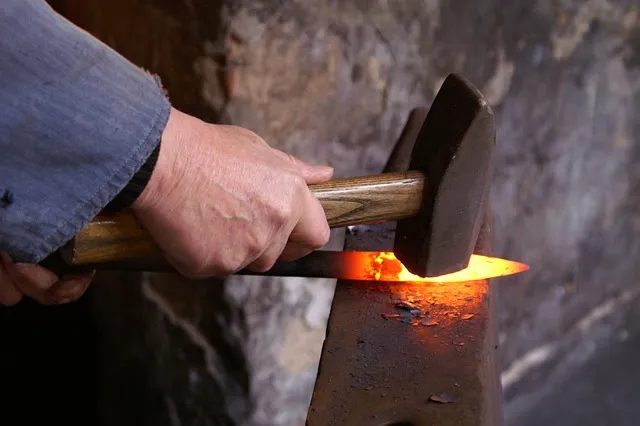What is metallurgy engineering?
A branch of engineering in which we study metals and alloys i.e. how they are produced, developed, and processed, is called Metallurgy engineering or metallurgy. In Metallurgy engineering, we learn how metals are extracted from ores, and how to refine them as per need. Also, their designing and fabrication process for the production of the end product.
Metails are used in our daily life in a form of utensils, vehicles, medicine, technology, construction, computers, and many more. With the use of technology & principles of materials science and associated engineering, new and advanced products are created that ease our everyday lives.

Metallurgy is subdivided into sub-disciplines like as physical metallurgy, chemical metallurgy, extractive metallurgy, process metallurgy, materials science, corrosion engineering, welding engineering, powder metallurgy, and many more. One can specialize in one or many disciplines as per the interest but each has its challenges and opportunities.
Chemical metallurgy and physical metallurgy: –
Chemical metallurgy:- How metals react and behave chemically with other things. How metals are extracted, processing of minerals, corrosion, electrochemistry process, etc.
Physical metallurgy:- Here we learn the mechanical properties of metals i.e. their physical properties and performance. This includes the shapes and patterns, testing the strength and hardness, how to change the structure with the help of heating or cooling of the metals or alloy, and more.
Metallurgy engineering can be divided depending on the type of metal or alloy: –
Ferrous metallurgy:- Deals with the processing of Metals or alloys based on iron like steel, cast iron, and wrought iron.
Non-ferrous metallurgy:- Deals with the processing of Metals or alloys based on other metals like aluminum, copper, zinc, titanium, and gold.
Ferrous metals contribute 95% of world metal production.
Metallurgy engineering is a rewarding career path where one can get various growth opportunities. Aspirants can obtain a full-time bachelor’s degree or diploma from a recognized institution to become metallurgical engineers.

Is Metallurgy a good career?
As we understand an engineering branch of that deals with the study and application of metals & alloys is called Metallurgical Engineering. The main work file of Metallurgists is to extract, process, and improve the properties of metals. The use of metals is in many sectors like manufacturing, construction, aerospace, energy, etc. There is a good career scope and opportunities for Metallurgists in India because India is one of the largest producers and consumers of metals in the world.
The demand & growth of metal in industries like infrastructure, automotive, railways, defense, and consumer goods is very good.
What is the future of metallurgy engineering?
As per the report of Ministry of Mines below are the metals produced in 2020-21
| Commodity | Production (Million Tonnes) |
| Iron Ore | 95.4 |
| Aluminium | 20.9 |
| Zinc | 9.3 |
| Copper | 8.2 |
| Manganese | 1.6 |
India has a treasure of coal, bauxite, chromite, titanium, nickel, etc
Due to vast industrialization, urbanization, and infrastructure development, the demand for metal products is expected to grow in the future & The Indian Government is making lots of efforts to boost the metal industry as a part of the Make in India initiative and other steel & mineral policies and schemes
There is a huge scope for metallurgists in India to work in different sectors:
Iron and steel industry: One of the largest and most important sectors that involve the production of steel from iron ore and other raw materials. Metallurgists are responsible for developing new steel grades and products as well as designing, operating, controlling, and optimizing to ensure quality, safety & efficiency as well.
Non-ferrous metal industry: This involves the production of aluminum, copper, zinc, lead, nickel, tin, etc. These metals are very much in demand and are used in electrical wiring, plumbing, batteries, etc.
What does metallurgy engineer do?
Metallurgical and chemical labs ,Iron and steel companies ,Airlines , Railways ,Defense ,Energy , Nuclear and many more
Metallurgical engineers can work in some of the below fields :
Mining and mineral processing: The job involves finding, extracting, and processing of minerals. Such minerals contain metals or metal compounds.
Metal production: Converting raw materials into refined metals or alloys. The process involves smelting, casting, forging, rolling, extrusion, and some other methods.
Metal fabrication: Giving shapes to metals or alloys into some specific form using machining, welding, brazing, and soldering.
Metal testing and analysis: Checking the metals or alloy’s quality with the use of tools and defined processes. Some are microscopy, spectroscopy, mechanical testing, etc.
Metal research and development: Work on improvement and innovation of metals or alloys for different purposes or qualities with some methods like simulation, modeling, experiment, etc.
Some of the major Metallurgist work profile :-
Metallurgist: Responsible for developing new metals & alloys. Improving the quality of existing metals for existing specific requirements & testing and analyzing the quality, properties, and performance of metals in different conditions.
Process Engineer: To design & optimize the processes that are needed to extract and refine the metals from its ores as well as ensure efficiency.
Quality Control Engineer: To ensure the production of metals and alloys as per the standards and specifications.
Material Engineer: To select suitable materials for various products and requirements after conducting the study of materials.
Research Scientist: R & D to develop new metals & alloys, and also to improve metal quality.
Some of the major companies in India where Metallurgists can work are Steel Authority of India Limited , Tata Steel, Jindal Steel & Power Limited , Hindalco Industries Limited, Vedanta Limited, Bharat Forge Limited, Larsen & Toubro Limited, and Bharat Heavy Electricals Limited . Metallurgists can work on various profiles: production, quality control, research and development, design, testing, marketing, and management.
Metallurgical Engineering can be studied in many reputed institutes like Indian Institutes of Technology (IITs), National Institutes of Technology (NITs), Indian Institute of Science (IISc), Birla Institute of Technology and Science (BITS), Indian Institutes of Science Education and Research (IISERs), Indian Institute of Metals (IIM), and Indian Institute of Engineering Science and Technology (IIEST).
In these reputed institutes, one can get admission through JEE Mains & Advanced, Common Admission Test (CAT), GATE, GRE, etc.
There is a lot of scope for metallurgical engineers in different projects and regular work such as designing, developing, testing, and improving metal to make different products & applications.





